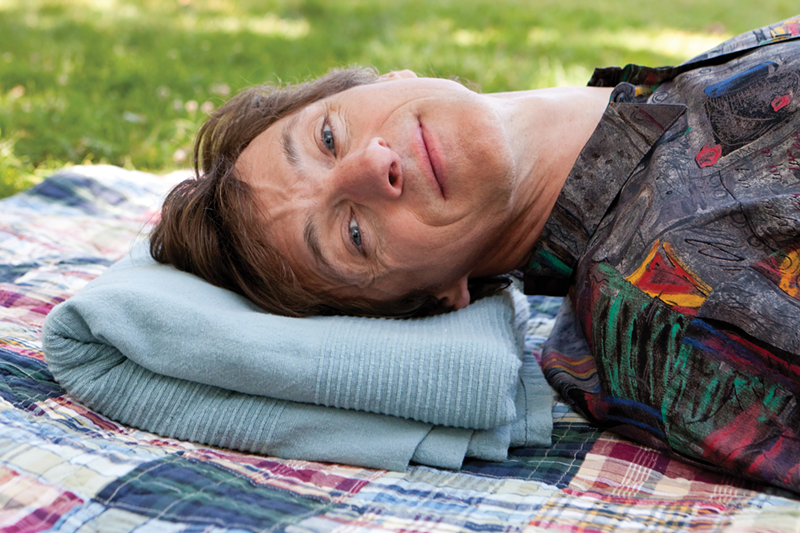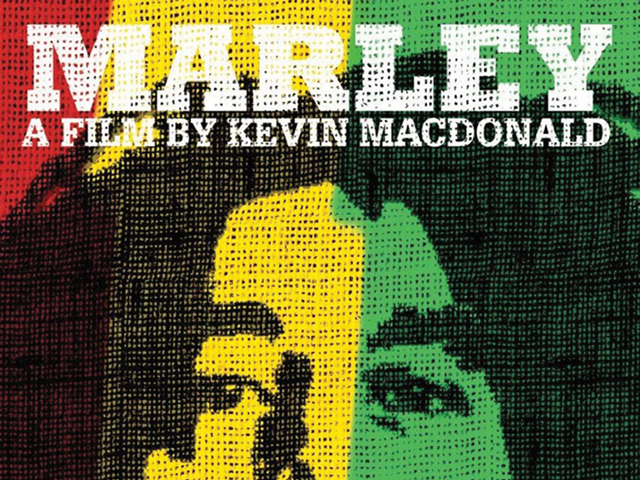Maybe we should pay closer attention to Buddhist philosophy. Not that everything should be reduced to a bumper sticker, but there’s one that you see often: DON’T JUST DO SOMETHING — SIT THERE! Be still, it tells us, embrace the call of life around you. We tend to think that to sit in silence is akin to inactivity, but that couldn’t be further from the truth. Slowing down, in the Buddhist way, is all about opening oneself up to the cacophony of life.
Audiences should keep this notion in mind during screenings of The Sessions, the new film from writer-director Ben Lewin (Georgia), featuring John Hawkes in one of those quietly human performances that seems to twist and shout, despite the fact that Hawkes’s character, poet Mark O’Brien, is a man confined most hours of the day in an iron lung. The role is the antithesis of what most actors find themselves drawn to. There’s none of the raw physicality nor are there opportunities to exhibit the short-handed lantern-jawed charm that can so easily capture attention and disguise any failings in terms of emotional expressiveness.
But that’s what makes Hawkes ideally suited to O’Brien and his sensibilities. O’Brien is alive, so much moreso because of his confinement. Truth be told, it is not his body that is trapped and immobile; rather it is his heart and his mind — each fragile piece beautiful, necessary and quite obviously stifled. All he has at his disposal, to seek and achieve any degree of freedom, is language. He not only communicates with words, but words become his replacement appendages, the instruments that allow him to interact and engage with the people around him and he craves to be treated as an equal, whole person.
And what would any vital and red-blooded man want to prove himself and his human worth? To be able to express physical love, to have sex. Not only does his physical state place limits on his ability to form an independent intimate relationship and to have what he would consider meaningful sex with a woman, but O’Brien is a devout Catholic, so the idea of having relations outside the bonds of marriage would be a sin.
What we have here is a moral and thoroughly human quandary.
Fortunately there’s no one better equipped to capture O’Brien’s physical and ethical dilemma than Hawkes who has confidently inhabited the margins of some of the most engaging and enlightening indie projects of recent years. I interviewed him during the breakthrough run of Winter’s Bone when so much of the buzz centered on Jennifer Lawrence and screenwriter-director Debra Granik (quite deservedly for both women), but couldn’t shake the preternatural calm he projected across the line. It can be coiled and chilling, as it was in Bone and Martha Marcy May Marlene, or it can shift, ever so slightly to something more earnest and steadfast (see his Sol Star from the short-lived HBO series Deadwood).
What I knew then was that Hawkes was one role away from drawing the spotlight to him. He wouldn’t have to steal the scene or stride boldly forth to wrestle the stage from someone else. We would simply come to him.
And that is exactly what happens in The Sessions. His O’Brien cannot grab the reins on his own, but each character that comes into his orbit succumbs to the irresistible pull. Vera (Moon Bloodgood), the personal attendant who becomes the unquestioning rock in his life, sets him on the path to discovering the hidden culture of sexuality among the disabled community. Father Brendan (William H. Macy), his priest and dear friend, grants him an audience with God, so that he can reconcile his faith and desire. Cheryl (Helen Hunt), the sex surrogate, ends up far more naked and exposed in his presence as she teaches him about human intimacy.
Somehow Hawkes imbues O’Brien with humor and grace and a wide-eyed innocence that is far from simple. He also makes us privy to the dark loneliness and despair that could lead to a yearning for escape, no matter the cost. The fascinating aspect of the performance is that Hawkes is able to show us these quite disparate emotional states sometimes in the same moment without it feeling like an actor fooling us with a sleight of hand tricks. O’Brien, from beginning to end, is a man struggling courageously in the face of it all, just like us.
So, as you enter the theater to watch The Sessions, don’t do anything other than watch Hawkes, feel the gravitational pull of the performance and remember the moment. It will likely be the first of many more that Hawkes will grant us.
The Sessions opens Friday at Mariemont. (R)
Grade: A
CONTACT TT STERN-ENZI : [email protected]






